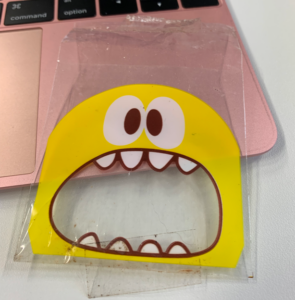How time flies. 2024 will come after around 10 days.
When I was a kid, I once wrote an article about the future. I imagined that in 2024, people can shop online, take online classes at home, and drive flying cars. At that time, I would never have imagined that in the coming twenty years, two of them would actually become a reality step by step. I could not even imagine that COVID-19 would really force me to shop and study at home. The world is really magical. In 2023, ChatGPT was born. I don’t know how artificial intelligence will completely change our lives in the coming 2024,that anything can happen in an instant and everything is full of unknowns.
I have become the adult I expected as a child. I will be faced with a variety of new choices, and these choices may very well change my whole life. I don’t know how to deal with the world changing drastically. I feel more deeply that as an ordinary person, I am just a grain of sand in the tide of the times. I don’t know where I came from and I don’t know where I am going to. It seems that I have chosen my life, but in fact I am swaying forward step by step under the invisible control of society. I often think about the purpose of this life and often feel empty and meaningless.I know loneliness is the normal state of life. Communication between people is a kind of spiritual support, but it is also a cage of freedom.
Anthropology is such a broad concept to me. I gave up studying a so-called high-paying science major because I knew I wouldn’t love it. But choosing to study a seemingly illusory topic, especially today when artificial intelligence is so popular, is this really the right choice? Make money in pain or become impoverished in obedience, it’s a hard decision – choose your preference between the two Rotten Tomatoes. Even though I like culture, I still face many choices. For example, I love reading, but I don’t like writing papers. I like communicating with people, but I don’t like studying people’s behavior.
Being a human being is hard. While constantly thinking about life, we also have to constantly withstand severe beatings from society. For example, I just found out that a rental website fraudulently deducted 160 euros from my account, but I can’t get a refund because they wrote the subscription terms in mini translucent font on the Q&A page. I feel haggard because of these things every day, and I can only console myself that it’s good that I’m still alive. For example, every time I see the elder sitting in wheelchairs or pushing mopeds, I have to think about what the world will look like when we age and whether we will still get support at that time. Or, will we live to be their age?
It is not good to think too much. In this vast universe, everyone is so confused and at a loss. What we occupy is only a small fragment in the long history of the Milky Way, and it will always become a thing of the past before we have time to think about anything further. But I’m so grateful that I am thinking. If a tree can think, then it wouldn’t be bad to be a tree for the rest of my life.
Anyway, 2024 is coming.
